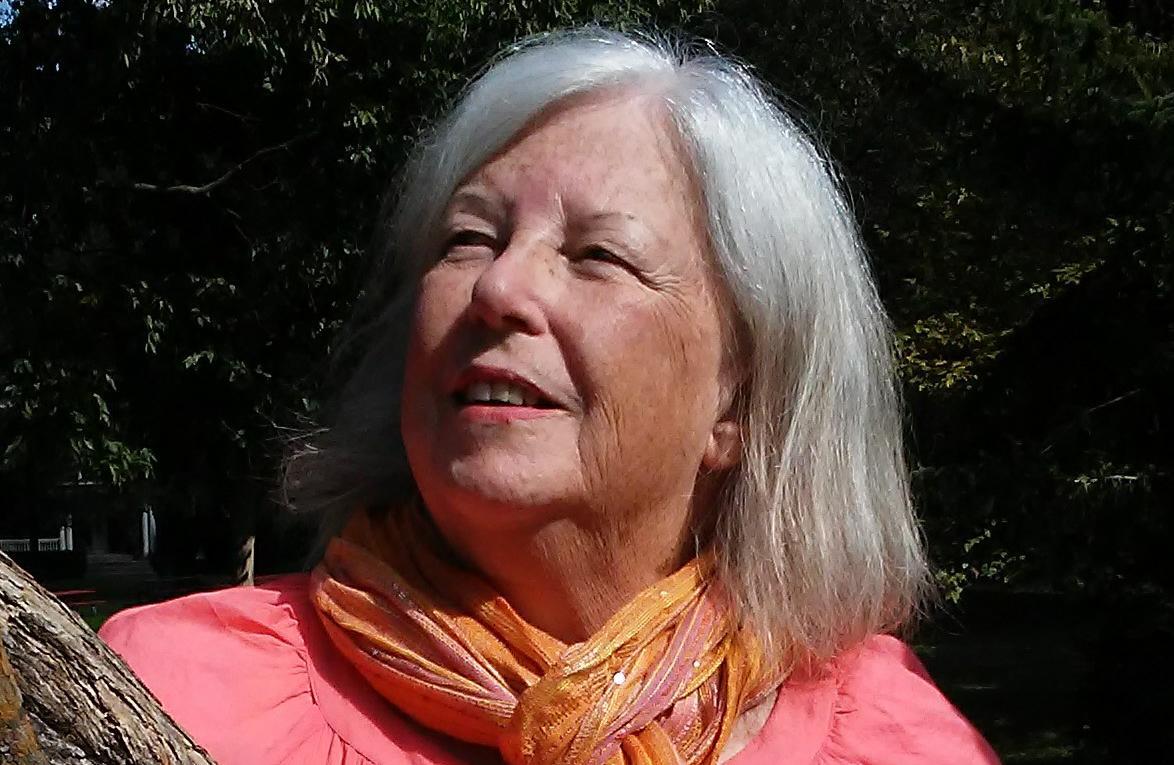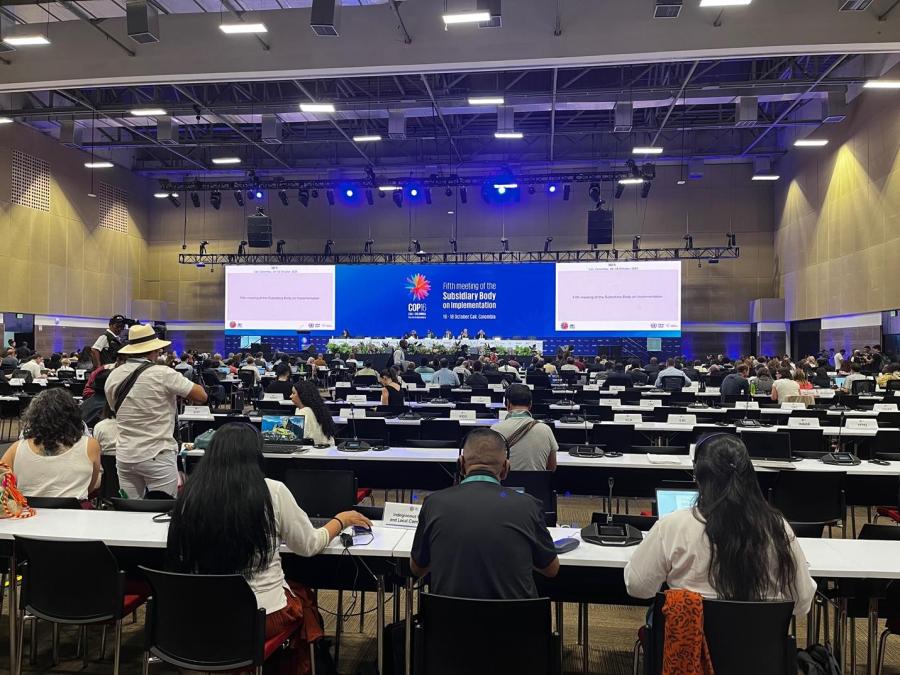
By Veronica Valente
In commemoration of World Poetry Day on March 21, 2021, Cultural Survival spoke to poet and artist Brigit Truex (Abenaki/Cree) about how, through her art and poetry, she has been able to find the recognition necessary to experience wholeness with her Indigenous identity.
Although Truex has been writing poetry for several years, she had not taken full ownership of her Native heritage until she took a trip to New England with her daughter. It was in Vermont that she reconnected with members of her ancestral community. Subsequent experiences provided her with a chance to learn the history of her family’s efforts to escape from the State and about their forced assimilation into the dominant American culture as a result of past eugenics initiatives.
After living in various parts of the country, Brigit Truex left California’s Sierra Nevada mountains for the flatter, milder section of Kentucky’s Bluegrass plateau. With a heritage of First Nations (Abenaki/Cree), French Canadian and Irish, it is no surprise that the natural world has greatly influenced her poetry. Her work has been included in various international journals including About Place, Yellow Medicine Review, Vallum, and Canary. Anthologies include I Was Indian, In Its Many Forms, Broken Circles, and the Kentucky Poetry Derby. She was a finalist for both the Locked Horn Press prize and Hopper Journal Prize. She has served as board member of the Wordcraft Circle of Storytellers and Writers and was poetry editor for The Hopper Journal. She is a member of the Native Writers Circle of the Americas. Sierra Silk, her latest collection, is currently available on Amazon.
The removal and disconnection from her land, and the long separation from her culture and traditions has left its mark on Truex who has been using her poetry to actively explore what it means to reconnect with her Indigenous heritage while at the same time resisting those who try to police her identity based on stereotypes of who counts as Indigenous. In her work, she also navigates the ideas of borders and ancestral lands. What has been a source of sadness and reminder of loss for Truex is now transformed into a source of hope and inspiration.
CS: Tell us about your background and what inspires you to write poetry?
Truex: My mother’s side of the family was from Vermont. I had never been there, but I was reading this nonfiction book about the state. The book was about the eugenics campaign that happened there, and it was pure racism. The idea of this program was to sterilize the “undesirables” and much of this work was directed against the Native Americans there – the Abenaki, which was my grandmother's Tribe, and when I read that, it made me realize why they never talked about it. I’m sure that for her mother and grandmother, it could have been deadly. So this is where the whole idea of integrating into a dominant society and passing began for us. I started to understand the reluctance to never look back. My grandmother was 80 when I was born, and I never got much of a chance to talk to her. She had anglicized her name, so I didn’t even know what to look for. I’m trying to dig for information, but I certainly feel a great sense of recognition and wholeness when you find evidence of your Native ancestry. Without the information you are left wondering what’s lacking in my life.
CS: How has your poetry and art helped you to negotiate the personal and physical realities of your identity?
Truex: When I first moved here to Kentucky, I had a contractor tell me “There weren’t any Indians here.” It was a peculiar statement, but I didn’t know much about the history here when I first moved. I couldn’t refute what he said, but he absolutely believed it. Coincidentally, another book I had been reading said that there were no Indians in Vermont. I remember thinking, oh, so thousands of years ago we came up to the border of New Hampshire and Vermont and just said, “We can’t go over there. We have to stay in New Hampshire, because there aren’t any Indians in Vermont.”
I’ve actually written a poem about the idea of losing your land to someone else and how you deal with that while still struggling to maintain your identity. In the poem, I show the European side of my family and the native side of my family meeting in North America. Even with the European side of my family, there is a genetic memory of always losing your land and having to make a new home and having to settle. I think that comes out in my moving and why it isn’t so hard for me. It's not an intimidating thing.
Sometimes people look askance at you because you don’t look like an Indian, and this actually inspired a collage that I’m working on. I will often patiently explain to them the geography of our country and how the Abenaki have been interacting with Europeans for hundreds of years. You can’t look down on us and say, “You don’t know your heritage, your traditions, you don’t look Indian.”
CS: What are you currently working on, and how has the COVID-19 pandemic been shaping your work?
Truex: Over the past year, we are all going through a kind of removal from the connection we have with our community. It gave me a small sense of comfort to know that for all of us who have lost our homelands, we have gone through this, and we can survive this new removal. I’m always finding topics and themes that I want to address in a poem, and that is something right there. It is a perfect example of what I can put into a poem to remind us that we can get through this. We are removed physically from our community, but we have that inner strength. It is a memory that is in our blood that we can pull through. We are not going to be decimated by this.
I think good poetry is like this when you have an experience and you feel an innate need to share it. I remember the first few times I had poems published. It was intimidating because you are sharing something that is personal, and you are sharing with people you don’t see or know anything about, but you’re opening up. To take that leap, I’m going to let the whole world read it and let them see something that is something in my heart. I hope that whatever I write, there is some response.
CS: What barriers have you experienced as an Indigenous person in attempting to disseminate your work to a larger audience?
Truex: I think the Black Lives Matter Movement has raised people’s awareness and appreciation of cultures that have been marginalized. It was in the 70s that there was a real interest in native culture, and I feel that it is finally coming back again. When I first started writing, I was reading native books, and then there was sort of a falling off of that, and I had a hard time finding any publishers. They just weren’t interested. I have a few tales that I’ve written, but there are still some publishers that specifically say they don’t want animal characters in their books for children. That excludes me and my stories. I have met many other Indigenous People who have animals in their stories because the animals are as equally as important. We are all living creatures that inhabit the earth. Why would you exclude animals? On the positive side, there does seem to be a renewed interest in native work. It is exciting to see other authors writing about the traditional stories as well.
CS: What is one message you would want someone to take away from your poems.
Truex: The mission right now is to say that we [Indigenous people] are here, and I want you to see us. We aren’t invisible, and just because we don’t look “Indian,” we are still here. I want us to be heard. I want our voices to be heard and recognized and given respect.
"Cole’s Hill" by Brigit Truex
Plymouth, Massachusetts burial place for Mayflower
Colonists and site of annual Wampanoag National
Day of Mourning on Thanksgiving.
under our feet
bones under soil
first light still touches
faces of the People
who gathered here
long before
long since
the wind-crippled
boat wedged between sand-ribs
and its people waded
into the shallows
knelt down on the earth
and claimed it home
boat wedged between sand-ribs
wind-crippled
long before
long since
grieving here
faces of the People
still touched by first light
bones under soil
bones under our feet
"Six Moons" by Brigit Truex
Six moons ago, I cut my hair,
lay the thick black braid,
twist of sweet-grass
in a length of red wool.
I offered it to the stars
before they cried themselves to sleep,
before Old Woman Moon
pulled her shawl across her wrinkled face
and wept for my loss.
Six moons have passed
since my grandmother
gave her bones to the woods,
to be scattered by the wolf
that owns that space.
in the time of her own choosing,
She returned to earth.
She is covered in darkness and leaves.
Six mons gone, already my hair
grows, curling around my fingers
like vines. Grandmother is there
in the veined leaves, her hands
offering themselves.
Read more of Truex’s work at booksandsuchbybrigittruex.wordpress.com.



